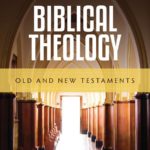Go offline with the Player FM app!
Vos Group #44 — Totemism
Manage episode 199288753 series 2021361

We continue our #VosGroup series in pages 174–175 of Vos’ book Biblical Theology: Old and New Testaments to consider totemism and Vos’s deep critique of biblicistic modernism. Totemism seeks to explain the distinction between the clean and the unclean by way of “a form of superstition” rooted in “savage tribes and families” who offered worship to certain animals and plants. Biblicism is any approach to reading Scripture that does not take the creeds and confessions of the church as normed norms that faithfully and accurately reflect the teaching of Scripture, over against heresy and heterodoxy as it has arisen in various forms. You can be either a liberal or conservative, and you can still be a biblicist—it is no respecter of persons in that regard. Modernism is that movement associated with the Enlightenment, rooted in Kantian philosophy, that seeks a de-supernaturalized history understood as a neutral realm of facts that leads toward an ethical ideal of true humanity (Schleiermacher is central in this regard). Modernists also take the Bible to be like any other historically conditioned book and thus an expression of community biography, rather than a history of progressive, organic, supernatural, covenantal revelation. In other words, modernism represents a neutral, anti-supernaturalistic, religion of ethics. It is Pelagianism come to historical self-consciousness—or come to consciousness of a purely immanent, natural, philosophy of history (Albrect Ritschl is a key figure here).
Participants: Camden Bucey, Lane G. Tipton
49 episodes
Manage episode 199288753 series 2021361

We continue our #VosGroup series in pages 174–175 of Vos’ book Biblical Theology: Old and New Testaments to consider totemism and Vos’s deep critique of biblicistic modernism. Totemism seeks to explain the distinction between the clean and the unclean by way of “a form of superstition” rooted in “savage tribes and families” who offered worship to certain animals and plants. Biblicism is any approach to reading Scripture that does not take the creeds and confessions of the church as normed norms that faithfully and accurately reflect the teaching of Scripture, over against heresy and heterodoxy as it has arisen in various forms. You can be either a liberal or conservative, and you can still be a biblicist—it is no respecter of persons in that regard. Modernism is that movement associated with the Enlightenment, rooted in Kantian philosophy, that seeks a de-supernaturalized history understood as a neutral realm of facts that leads toward an ethical ideal of true humanity (Schleiermacher is central in this regard). Modernists also take the Bible to be like any other historically conditioned book and thus an expression of community biography, rather than a history of progressive, organic, supernatural, covenantal revelation. In other words, modernism represents a neutral, anti-supernaturalistic, religion of ethics. It is Pelagianism come to historical self-consciousness—or come to consciousness of a purely immanent, natural, philosophy of history (Albrect Ritschl is a key figure here).
Participants: Camden Bucey, Lane G. Tipton
49 episodes
All episodes
×Welcome to Player FM!
Player FM is scanning the web for high-quality podcasts for you to enjoy right now. It's the best podcast app and works on Android, iPhone, and the web. Signup to sync subscriptions across devices.




